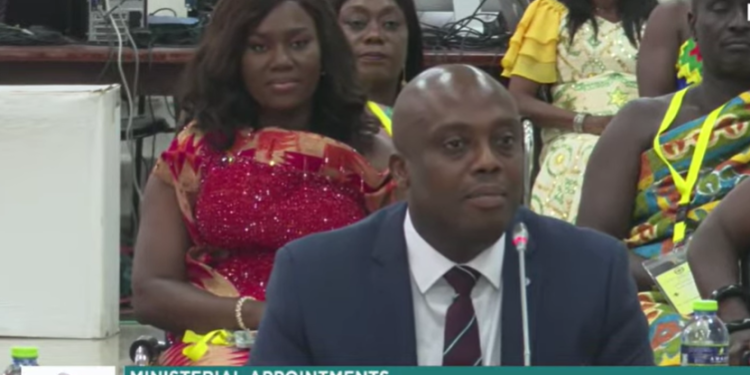
Deputy Minister for Finance-designate, Thomas Nyarko Ampem has stressed the need for Ghana to start planning for a future without aid, following the decision by the United States Agency for International Development (USAID) to withhold funding.
The move by USAID has already prompted President John Mahama to direct Finance Minister Dr. Cassiel Ato Forson to seek alternative sources of funding to bridge the estimated financial gap of $156 million.
Deputy Minister for Finance-designate, Thomas Nyarko Ampem during his vetting on Monday, February 24, 2025, observed that Ghana over the years has relied on donor support for various development initiatives, but there has been a consistent decline in aid inflows.
This happened at a time that fortunately we are in the process of preparing the 2025 budget so I am sure the Minister will be able to make provisions to bridge the gap. This should bring us to the larger conversation about aid. We know that aid to our country has been dwindling over the years.
“DANIDA is no longer supporting programs in Ghana as they used to. United Kingdom for instance has reduced their aid budget from I think from 0.75% of GNP to 0.5%.
This should tell us that it will get to a time when aids to our country will dwindle to zero. The only difference between DANIDA and other donor funding and that of the USAID is that the announcement of the USAID withdrawal came suddenly.
“But we have seen the trend that aid is dwindling and so it is important that we begin to plan our lives without aid and see what we can do for ourselves,” Thomas Nyarko Ampem told Parliament’s appointment committee.
They decision by the USAID to withhold funds raises concerns about the sustainability of donor-dependent projects in sectors such as health, education, and infrastructure. Over the years, Ghana has received substantial financial support from development partners, but recent global economic trends and shifting donor priorities signal a need for the country to rethink its financial strategy.
Thomas Nyarko Ampem noted that achieving economic self-reliance would require strengthening domestic revenue mobilization, expanding the tax base, and improving efficiency in public spending.
Thus policymakers will need to implement long-term solutions that ensure sustainable growth and reduce vulnerability to external funding decisions.

